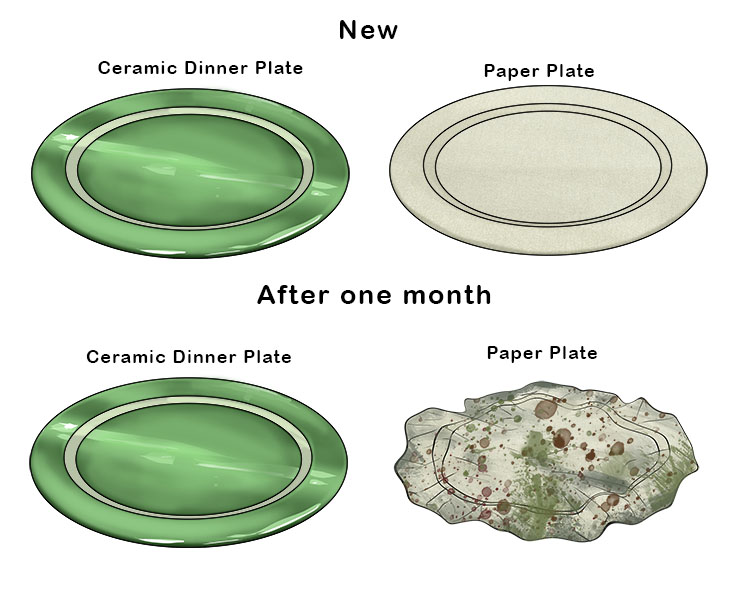durable goods – consumer goods which do not have to be bought frequently because they last for a long time
(Pronounced dyur-uh-buhl guhds)
(Note: Durable goods are also known as hard goods or consumer durable. One that yields utility over time rather than completely consumed in one use.)
To remember what durable goods means use the following mnemonic:
I'm an endurance athlete and I'm not able (durable) to take equipment that doesn't last a long time.

Think of the most long-lasting and therefore durable goods in your house. Examples include; a washing machine or a fridge. These will last years before being replaced, so they are classed as durable goods.
The opposite is a non-durable good, a product that has a short life span and must be replaced often. Non-durable goods are also soft goods.
A simple example of durable vs non-durable goods is a comparison between ceramic dinner plates and paper plates.

Paper plates do not have a long life span before they need replacing, so therefore are non-durable goods.
The ceramic plate, however, with the right care can last for years, so therefore is a durable good.




